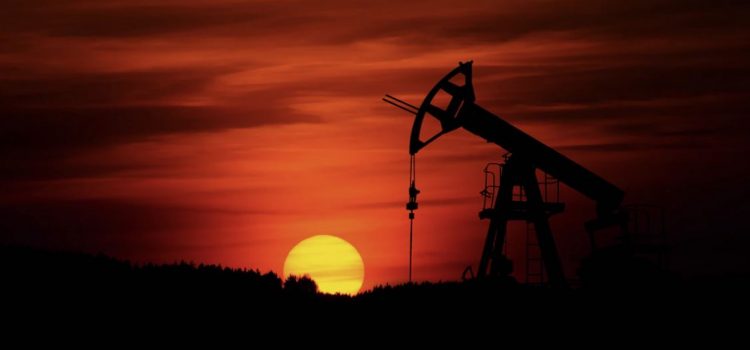

This article is an excerpt from the Shortform book guide to "Blowout" by Rachel Maddow. Shortform has the world's best summaries and analyses of books you should be reading.
Like this article? Sign up for a free trial here.
What is Rachel Maddow’s book Blowout about? What shocking revelations does she share?
In Blowout, journalist and MSNBC commentator Rachel Maddow aims to expose the corruption and exploitation underlying the oil and gas industry. Ultimately, she argues that only full transparency and strict environmental regulation can protect the planet from devastating accidents and corporate greed.
Here’s an overview of the book Blowout, including Maddow’s advice for the world.
Blowout: Corrupted Democracy, Rogue State Russia, and the Richest, Most Destructive Industry on Earth
In Blowout, book author, journalist, and MSNBC commentator Rachel Maddow investigates corruption in the energy industry and condemns its effects on the environment, the economies of oil- and gas-rich nations, and the balance of power in Europe. Maddow examines oil and gas production across the world—focusing mainly on the United States, Russia, and Equatorial Guinea—to illustrate how the industry relies on exploitation and environmental destruction wherever it operates. Ultimately, she argues that the only way to protect people from the industry—while continuing to reap the benefits of oil and gas—is to place it under strict government regulation.
(Shortform note: Though she got her start in radio and has written several books, Maddow is best known for her successful MSNBC news analysis program. Fans typically praise her focus on data and statistics mixed in with a conversational tone. On the other hand, critics note that her commentary has a clear liberal bias, and Blowout in particular has been accused of unfairly demonizing conservative figures like Donald Trump and Vladimir Putin.)
This guide organizes Maddow’s arguments into five major topics, which occasionally overlap:
- Why oil and gas are so profitable, which discusses the origins of the energy industry
- How energy production can weaken a country, which discusses “the resource curse” and why nations made wealthy by oil and gas still struggle with poverty and corruption
- How the energy industry hurts the environment, which discusses oil leaks and the connection between fracking and earthquakes
- Russia’s energy monopoly and its political consequences, which discusses the connections between Russia’s corrupt gas industry and the conflict in Ukraine
- How to protect the world from the energy industry, which discusses Maddow’s suggestions for change
Alongside these topics, we’ll consider new developments in international politics since the book was published in 2019 and give context to some of Maddow’s more technical claims about economics and the environment.
Why Oil and Gas Are So Profitable
Maddow argues that the problems oil and gas create for the world, both politically and environmentally, are not a side effect but inherent to these industries. With the discovery of oil and gas in the 19th century and the perfecting of mining techniques in the 20th, burning fuel became the world’s dominant energy source. Early American oilmen and gasmen saw profit from prioritizing vast production and cost-cutting over environmental concerns, and their wealth gave them significant power to manipulate the economy and even national politics.
Oil
The discovery of rock oil in America in the mid-1800s caused an energy revolution, and today oil powers cars, trains, jets, farm equipment, power plants, and factories more cheaply and easily than previous power sources like coal or whale fat. Maddow explains that almost immediately, the industry was controlled by a monopoly: John D. Rockefeller’s Standard Oil. By the end of the century, the company had effectively destroyed or bought out all competition, and Rockefeller remains the richest person in American history.
In 1911, the Supreme Court ruled that Standard Oil had violated the 1890 Sherman Antitrust Act. Its monopolization had crushed smaller businesses, inflated prices, and given Standard Oil the primary say in where American oil was sent, both domestically and abroad. The company was ordered to split into many smaller, competing businesses. Maddow argues that though this would seem like a solution, Rockefeller retained ownership in each of the offshoots, continuing to make money even in a healthier economic system. In addition, many of these companies built themselves back up to positions of similar power within a century—Chevron, BP, and Marathon all originate at least in part from Standard Oil. ExxonMobil is its direct descendant.
Gas
Although natural gas mining has taken place since the 1820s, Maddow argues that the industry made its most significant strides in the 1990s with the invention of new drilling tools and techniques. These developments made natural gas mining equally profitable as oil mining, and many American companies began to pitch gas as the superior alternative since it was supposedly safer and produced in high enough quantities that it could replace Americans’ dependence on foreign oil.
Slickwater and Horizontal Drilling
Natural gas is mined mainly through fracking. Miners drill into natural gas pockets deep below the earth, then inject fluid into the hole at high pressure, forcing the gas to move up to the surface through cracks where it can be collected. Prior to the 1990s, this fluid was usually a gel, which was expensive to produce and often clogged the very passages the gas was meant to move through. When these gels were replaced with slickwater—a cheap mixture of water, sand, and chemicals designed to reduce friction—more gas could be collected for less expense.
The horizontal drilling technique developed soon after allows companies to frack more gas from a single drill site or well. Rather than simply drilling straight down, the drill reaches the required depth, then turns at a right angle and continues to drill sideways, connecting gas chambers that extend thousands of feet. Though this requires companies to use more slickwater on a single well, doing so is less expensive than drilling hundreds of wells that only produce gas for a short time.
The Potential for Energy Independence
Fracking underwent a boom in the early 2000s and was depicted by many energy companies as being the way of the future. The US had far greater gas reserves than oil reserves and potentially had enough gas to support up to half of the country’s energy needs for the next hundred years. Shortly following the US invasions of Afghanistan and Iraq, legislators and businessmen hoped they could sever ties with oil-producing countries in the Middle East in favor of producing their own energy. This would keep energy production cheap and allow the US military to take action without worrying about jeopardizing diplomatic relationships with Organization of the Petroleum Exporting Countries (OPEC) member nations like Saudi Arabia.
Maddow concedes that America benefited from producing its own natural gas, but she points out that for many countries in Europe, dependence on foreign oil has simply been replaced with dependence on foreign gas, namely gas produced by Russia. As the relationship between the European Union (EU) and Russia has grown more tense following the 2014 annexation of Crimea, gas prices have soared, just as oil prices did in the early 2000s.
How Energy Production Can Weaken a Country
While oil and gas production has been extremely profitable for the US and has increased American influence abroad, this is not the case for the majority of energy-producing countries. Maddow cites The Paradox of Plenty by Terry Karl as originating the theory of “the resource curse,” the idea that countries with an abundance of natural resources tend to be more authoritarian, have less stable economies, and experience greater social unrest and violence than countries that profit mainly off of manufacturing and trade.
This theory applies primarily to so-called developing countries, which have historically been colonized by Europe. The governments of these countries tend to be comparatively young—most are less than a century old—and dependent on their relationships with foreign banks and companies. These largely European and American partners encourage developing governments to exploit their country’s natural resources to compete in the global market but provide little assistance toward diversifying their economies (so that they aren’t at risk of total collapse when a certain product crashes) or developing essential public infrastructure (such as roads, hospitals, schools, and workplaces for locals, like factories).
As a result, while developing countries make a lot of money from selling off their natural resources or access to drill sites for foreign companies, these profits are concentrated in the hands of a few businessmen and government officials. Few jobs are produced by investing in the energy industry, and the quality of life for the average citizen remains low.
The Resource Curse in Equatorial Guinea
Maddow’s example of a country afflicted by the resource curse is Equatorial Guinea, which has been exploited by American energy companies like Marathon, Hess, and ExxonMobil since the 1980s. Despite being one of the richest countries in Africa today, the quality of life for Equatorial Guinea is low, with nearly 80% of its citizens living in poverty. President Teodoro Obiang Nguema Mbasogo, an authoritarian who has been in power since 1979, is widely accused of embezzlement and taking bribes, alongside human rights abuses.
Maddow suggests that Obiang is an attractive business partner to foreign energy companies since they can easily negotiate with him without having to worry about environmental regulations or local competition. Maintaining a good relationship with a dictator can also result in special deals—for example, while other countries require American oil drillers to share over half of their profits with the local government, Obiang’s government asks for less than a third of ExxonMobil’s profits. Though US federal investigations of Obiang have turned up evidence of corruption, the US government officially maintains a positive relationship with the country, even paying for an independent mercenary group to help protect its oil production facilities in 2010.
Maddow argues that even if Obiang was removed from power, the country’s total dependence on oil makes it unstable and prone to further exploitation by foreign companies. Since drill sites require more specialized equipment than manpower, the industry provides only a limited number of jobs for locals, and the equipment isn’t easily repurposed for other industries. In fact, oil drilling makes it harder for other industries to grow by seizing large swaths of land and damaging them to the extent that they can’t be used for agriculture or as building sites. The only way for Equatorial Guinea to escape the resource curse is to diversify its economy by investing in other industries.
The Resource Curse in Russia and America
While the United States and Russia don’t suffer from the resource curse to the same extent as Equatorial Guinea, Maddow argues that corruption and a focus on energy production at the expense of other industries still have a negative impact on these countries’ economies. While energy magnates have become billionaires over the past few decades, the quality of life for people living near oil or gas sites has stagnated or declined.
Even as Russia has become one of the primary energy producers in the world and the main supplier of gas to Europe, death and disease rates are high, the average household income is less than half that of other energy-producing countries like Norway and Saudi Arabia, and public infrastructure like roads remains underdeveloped in many cities. In the United States, while some states have used the profits from the energy industry to pay off debts and improve public services, others—such as Oklahoma—have given energy companies significant tax breaks even while a lack of tax revenue has meant the closure of schools and reduction in safety services that could save lives.
How the Energy Industry Hurts the Environment
Maddow contends that oil and gas mining have both had devastating impacts on the environment over the last century, destroying ecosystems, poisoning the people who live near drilling sites, and contributing to climate change. Attempts to regulate the industry have stalled as energy magnates lobby for less government oversight and insist that scientific evidence showing the connection between their industry and environmental damage is either a hoax or ambiguous.
Oil Spills
Oil spills caused by leaks or explosions can dump millions of barrels of toxic chemicals into the oceans, killing marine life and polluting coastlines. The most famous example is the 2010 Deepwater Horizon accident, in which a series of malfunctions caused a BP-Transocean oil rig in the Gulf of Mexico to explode, sinking the rig and killing 11 people. Over five million barrels of oil were released into the water as a result.
Such spills are common, though generally less deadly, and they’re often underreported despite the amount of damage they do. Maddow points out that despite its fame, Deepwater Horizon is not the worst spill in American history, and a similar spill occurred in Equatorial Guinea that same year.
While the US government has repeatedly condemned companies’ negligence and lack of oversight that lead to such spills, this hasn’t translated into change, as there are still 20 such accidents for every 1,000 drill sites operating each year. Even worse, according to Maddow, neither the government nor the oil companies responsible have realistic plans to mitigate the damage. Cleanup of the Deepwater Horizon spill is ongoing as of the 2020s, and exposure to chemicals may have made many of the people who worked on the cleanup sick. In the event of similar disasters, there’s no way to quickly remove the oil before it significantly impacts the environment around it.
Fracking and Earthquakes
While the dangers of oil production have been known for decades, in the early 2000s gas was pitched as an eco-friendly alternative to fossil fuels. However, as Maddow points out, a series of accidents and slickwater leaks have revealed that the byproducts of fracking can be as harmful as an oil spill. In the 2010s, scientists proved that fracking could even cause devastating earthquakes.
Leaks
While slickwater itself is not especially dangerous, the process of fracking produces a number of toxic byproducts which emerge from drill sites alongside natural gas. This “flowback” water often contains radioactive material, and while some of it can be recycled for additional fracking, much of it needs to be disposed of. Maddow gives examples of how storage and transportation of flowback water in poorly designed tanks has resulted in leaks, poisoning soil, ponds, and farmlands near fracking sites.
Pets and livestock exposed to these waste products have become ill or died, and studies done on two affected families in Pennsylvania found that exposure gave them arsenic poisoning. While most leaks are accidental, in some states, such as North Dakota, gas companies illegally dumped fracking waste products onto Native American reservations or abandoned lots, careless of the effect they might have on nearby communities or water supplies.
Oklahoma’s Earthquake Crisis
Another way to dispose of flowback water is to inject it back into the earth once the drilling process is complete. Maddow notes that studies done throughout the 2010s found that these injections, which sent millions of gallons of waste product deep underground at high pressures, could cause earthquakes.
Between 1980 and the late 2000s, Oklahoma experienced around 40 earthquakes in total that scored above a 3.0 on the Richter scale. From 2010 on, however, Oklahoma experienced hundreds of powerful earthquakes every year, topping out at over 900 in 2015. Maddow argues that this sudden change can be attributed to a boom in the gas mining industry and the astronomical growth of the local Chesapeake Energy company.
Though the connection between gas mining and earthquakes was suspected as early as 2010, according to Maddow, local energy magnates used threats and leveraged relationships with politicians to suppress research that suggested this link. However, in 2016 public outcry led the state government to enforce stricter regulations on gas companies. The Oklahoma Corporation Commission was empowered to shut down drill sites operating near fault lines or seismic activity, and energy companies must allow for real-time monitoring of their disposal operations. Maddow notes that as a result, the frequency of 3.0 earthquakes in Oklahoma has decreased dramatically, with less than 200 occurring in 2018.
Russia’s Energy Monopoly and Its Political Consequences
Maddow describes Russia’s energy industry as one of the most corrupt in the world, with President Vladimir Putin using his position to take over private energy companies and redistribute their resources among his allies. His administration’s increased wealth and power has enabled not just Russia’s dominance of the gas industry in Europe but also, Maddow argues, its increasingly aggressive and illegal behavior in Ukraine since the 2010s.
Putin’s Monopolization of Russian Energy Production
Putin has been the primary leader of Russia since 2000, serving continuously as Prime Minister, President, or occupying both positions at once. When he was first elected, the country was still recovering from its 1998 financial crisis; his leadership is credited with stabilizing the economy, greatly reducing Russia’s foreign debt and increasing its ability to export oil and gas throughout the world. However, Maddow suggests that Putin has used his position to enrich himself and his allies, such as Igor Sechin, the former deputy prime minister and current energy mogul. Putin’s administration has been repeatedly accused of corruption and using violent tactics to silence critics—such as assassinating Russian physicist and opposition politician Boris Nemtsov in 2016.
According to Maddow, Putin’s goals for the Russian energy industry, once he took power, were to modernize its equipment and expand its operations as quickly as possible, using foreign investors like Morgan Stanley and ExxonMobil to finance this growth. Today, his administration asserts near-total control over oil and gas production, having slowly consolidated Russia’s equipment and reserves under two state-owned companies: Rosneft, an oil company run by Sechin, and Gazprom, a gas company that is the sole supplier for many Eastern European countries, including Ukraine.
An example of the industry’s corruption comes from Rosneft’s hostile takeover of its main competitor, Yukos, in 2003; CEO Mikhail Khodorkovsky was arrested on what are largely considered to be false charges of tax evasion and fraud, enabling the government to seize the company’s assets and sell it at auction to Rosneft, through a front company for an extremely reduced price.
Russia’s Monopolization of the European Energy Trade
Maddow argues that Russia has deliberately cultivated a European dependence on Russian oil and gas and undercut attempts by neighboring countries to develop their own energy industries so they can compete. This dependence has simultaneously boosted the Russian economy and allowed it to advance its foreign policy goals in Eastern Europe; namely, the domination and takeover of Ukraine.
Russia as an Energy Superpower
As of the early 2010s, Russia supplied 40% of the European Union’s gas imports and was the sole supplier of gas to many former Soviet satellite states, including Bulgaria, Slovakia, the Baltics, and Ukraine. The extent of this dependence was revealed by the 2006 New Year’s crisis when Gazprom abruptly reduced the amount of gas being pumped through Ukraine to the rest of Europe. Several states declared national emergencies, lacking the power to operate factories or even heat government buildings.
As a result, most European states have sought to strengthen their relationship with Russia in the past two decades, seeing it as a necessary ally and a safer alternative to partnerships with OPEC nations in the Middle East. The Nord Stream pipeline, constructed jointly by Germany and Russia with the approval of the European Union, cemented many of these relationships.
Russian Interference in Ukraine
The extent of this dependence in Eastern Europe in particular has allowed Russia to manipulate the internal policy of certain countries. For example, Ukrainians have been “punished” for making moves toward joining NATO and the EU by having the cost of gas raised or their supply cut off. These tactics work in combination with mobsterism (Ukrainian politicians have been mysteriously poisoned or arrested on false charges) and Russian-backed puppet leaders, such as former president Viktor Yanukovych, to undermine Ukraine’s independence and give Russia near-total control over Ukraine’s economy.
Maddow argues that Russia’s domination of Ukraine is motivated by both economic advantages and Putin’s Russian nationalism, which sees Ukraine as the historical property of Russia and its independence since 1994 as illegitimate. Repeated attempts by Ukrainians to oppose Russian interference or elect anti-Putin leaders culminated in a series of conflicts in 2014. Russia invaded and annexed the Crimean peninsula a few months later, and in the years since war has continued in eastern Ukraine. While the annexation of Crimea was widely condemned, Maddow points out that few European nations intervened on Ukraine’s behalf, afraid to jeopardize their relationship with Russia and thus their access to Russian gas.
Russia’s American Allies
Maddow claims that both Russia’s status as an energy superpower and its encroachment on Ukraine would have been impossible without its long-standing partnership with ExxonMobil. While Russia has massive gas and oil reserves, both the equipment and the technology used by Rosneft and Gazprom are decades out of date, and relatively few new wells have been discovered and developed since the end of the Soviet era in 1991.
The Rosneft-ExxonMobil deal signed in 2011 gave ExxonMobil significant tax breaks in exchange for drilling new wells and helping to modernize Russia’s process. Both companies have made an enormous profit from this relationship, and ExxonMobil has fought to maintain it, even in the face of the economic sanctions imposed on Russia by the US and much of Europe in 2014. In fact, ExxonMobil shut down its operations in Russia only after being explicitly ordered to do so by the Obama administration.
Maddow argues that the Trump administration was another significant ally to Russian energy, with former ExxonMobil CEO Rex Tillerson serving as Secretary of State for several years. One of President Donald Trump’s first acts in office was to nullify a 2010 law that required American energy companies to publicly report on their dealings with foreign governments. While Trump did not roll back the sanctions, he frequently praised Russia and Putin’s leadership, and Maddow points to evidence that the two leaders may have colluded to secure Trump’s 2016 electoral win.
How to Protect the World From the Energy Industry
Maddow closes the book by discussing some possibilities for curbing the negative effects of the energy industry; namely, by bringing an end to tax breaks for oil and gas companies, requiring more transparency on their dealings with foreign governments, and enforcing stricter government regulation of where, when, and how these companies can drill.
She argues that requiring energy companies to pay higher taxes would mean that their profits would enrich the citizens of the state where drilling takes place, not just the energy executives. More transparency, as enforced by laws that would require companies to report exactly how much money (and for what goods or services) is changing hands, could bring an end to corruption; if ExxonMobil had to report on its dealings with Equatorial Guinea or Russia this extensively, bribes and money laundering would become impossible. Finally, strict government regulation of drilling activity could prevent accidents and environmental disasters.
Some of these changes were made in Oklahoma from 2016-2018, and the positive effects were immediately obvious. Raising taxes meant that the demands of striking teachers for better pay and conditions could be met, and the local government could pay off some of its debts, all without significantly hurting the profitability of the energy industry. Local oil and gas companies have continued to thrive without endangering the lives, property, and environmental resources of Oklahomans.

———End of Preview———
Like what you just read? Read the rest of the world's best book summary and analysis of Rachel Maddow's "Blowout" at Shortform.
Here's what you'll find in our full Blowout summary:
- A deep dive into the corruption and exploitation in the oil and gas industry
- Examples of how the discovery of oil can weaken a country
- Possible ways to protect the world from the energy industry






